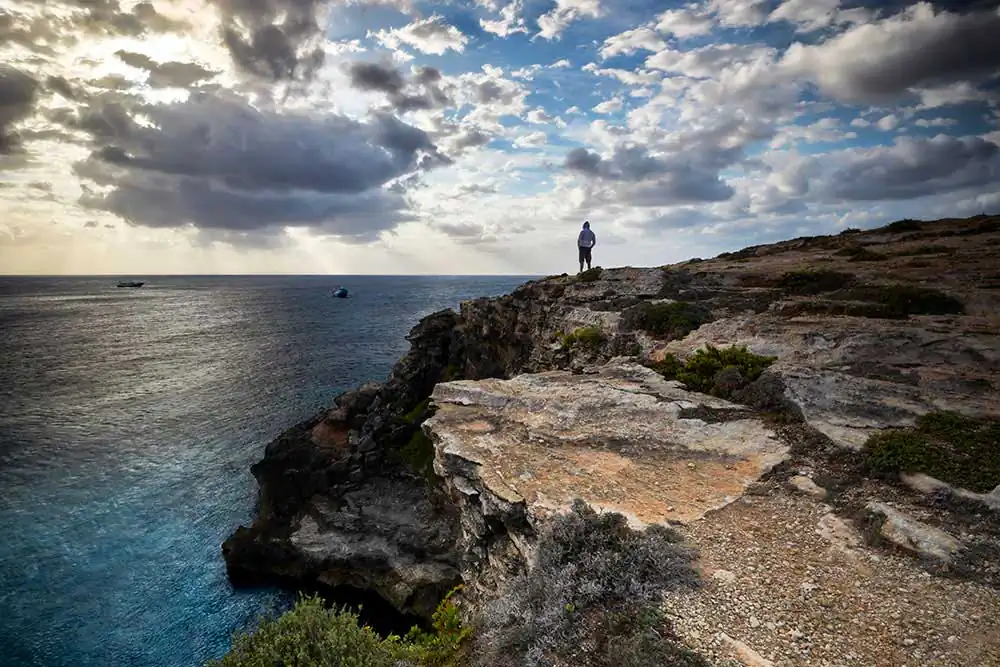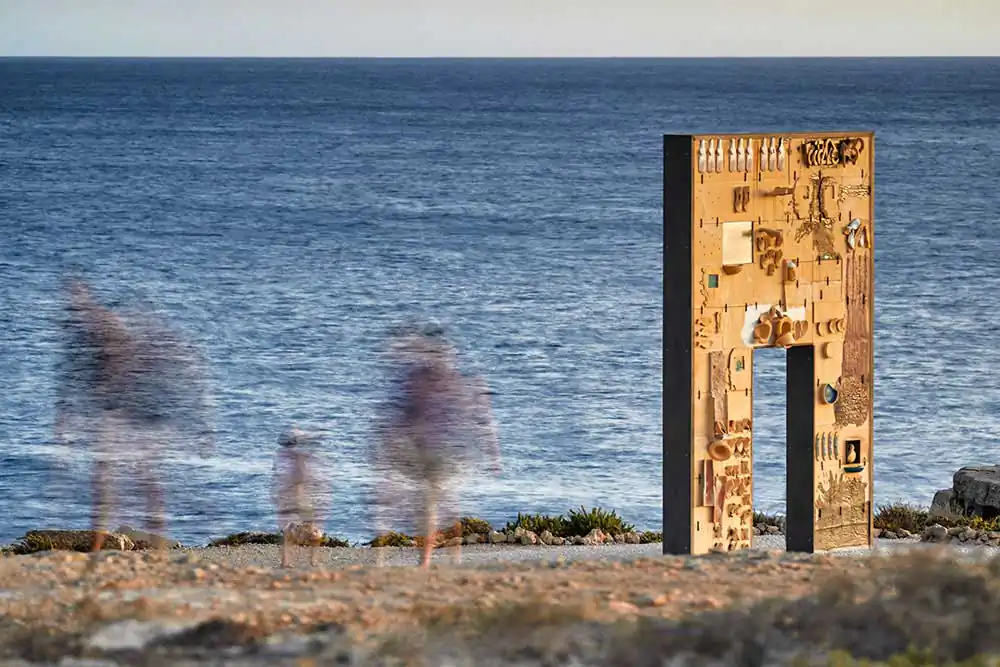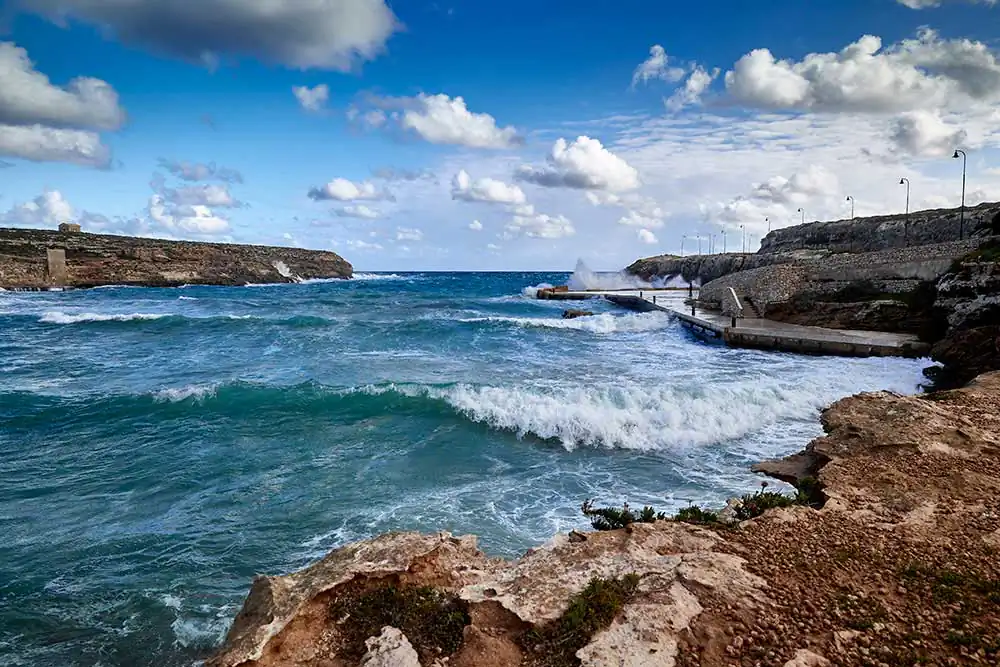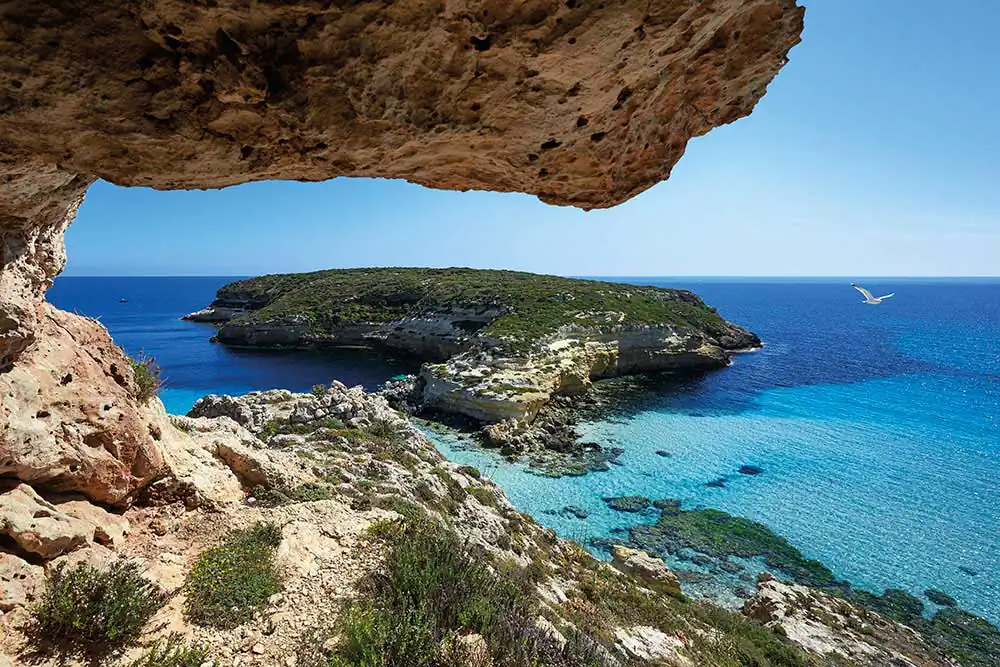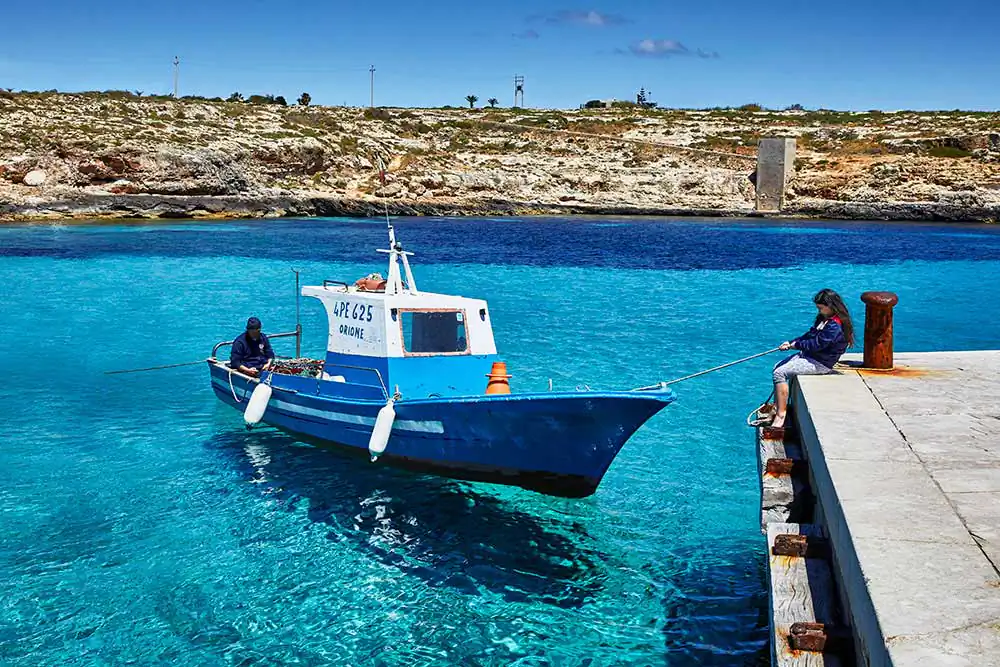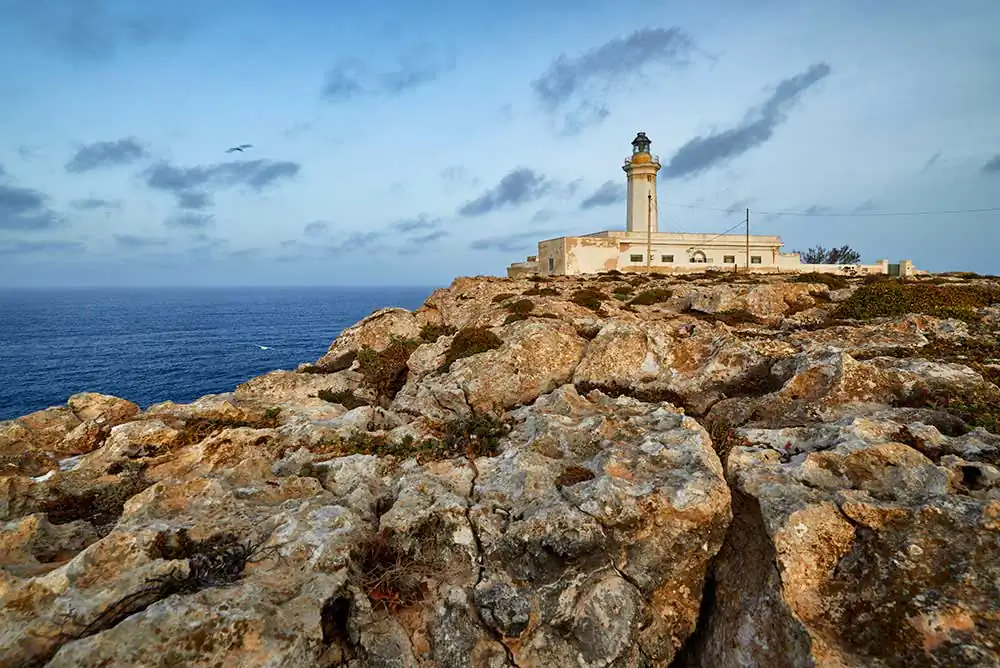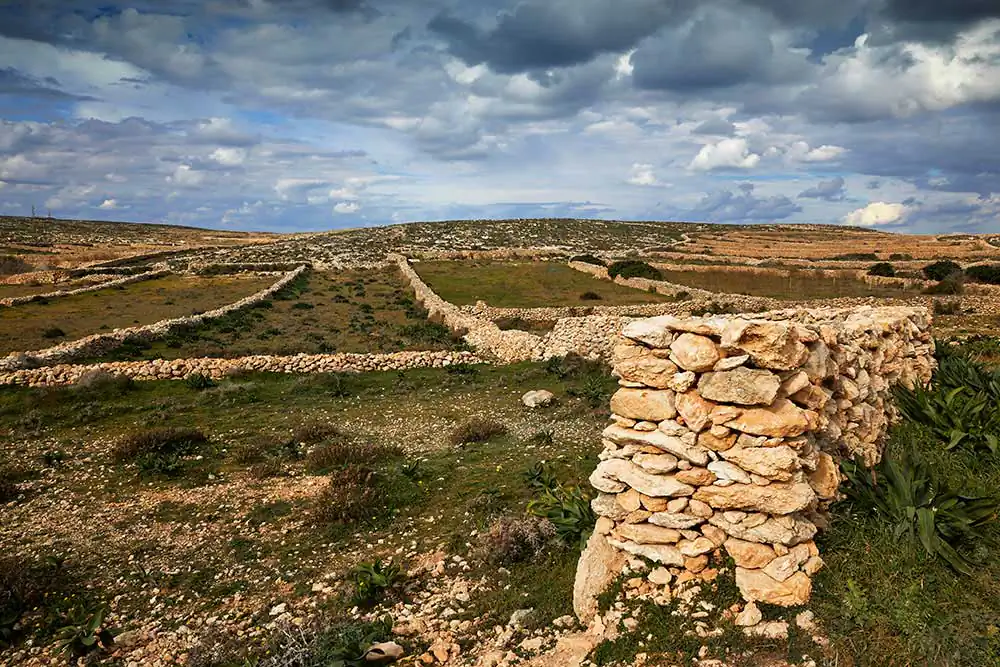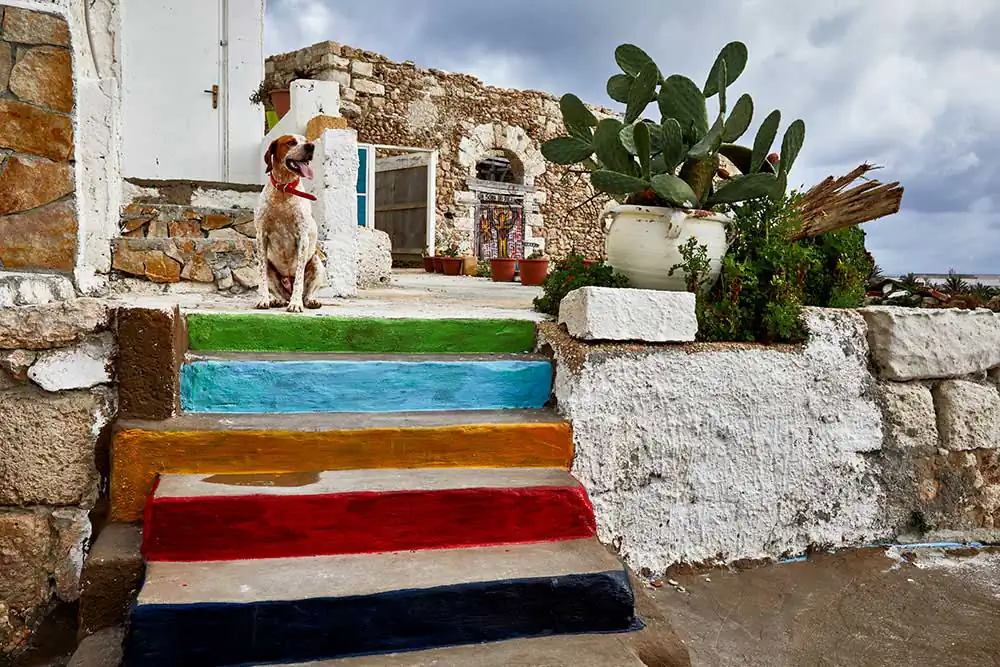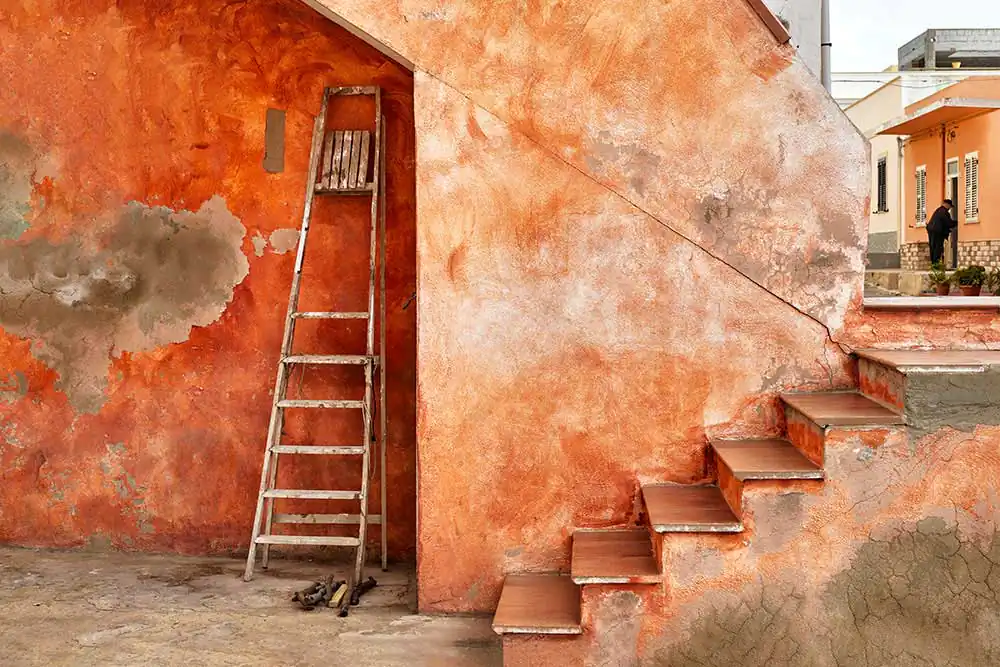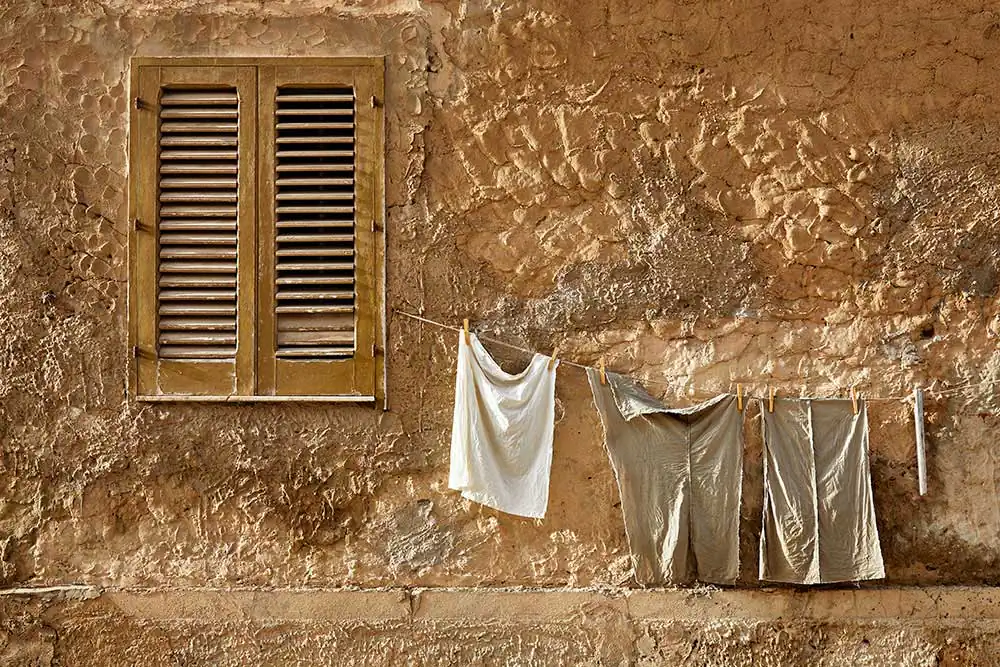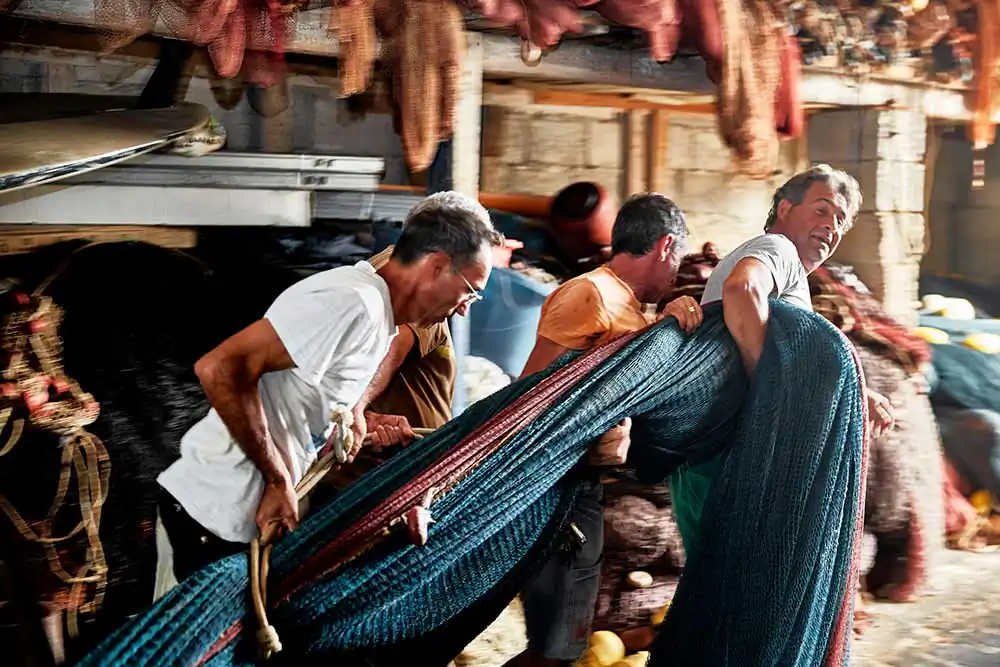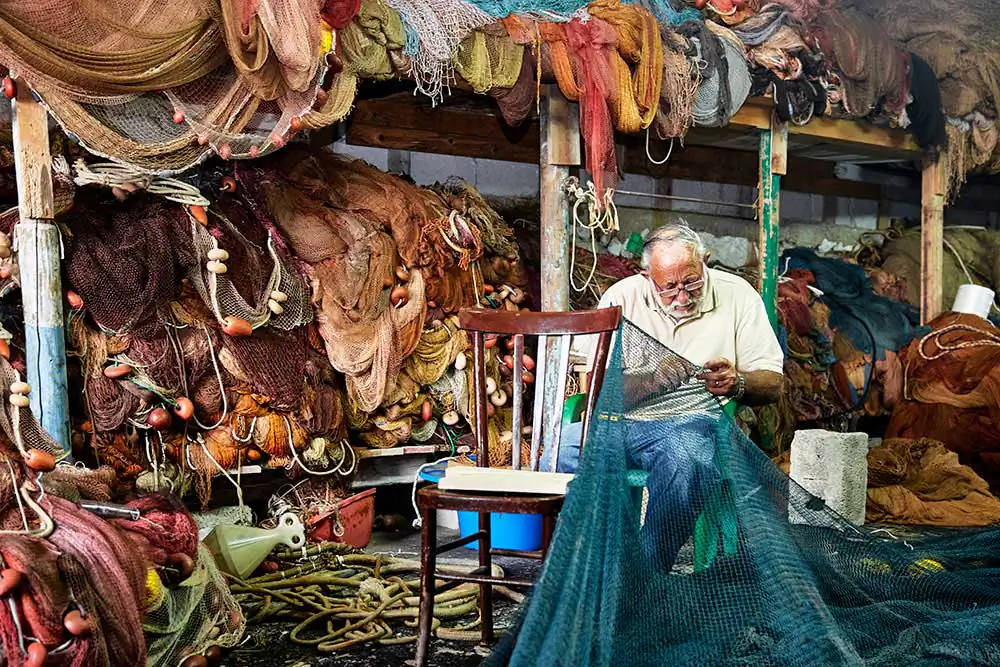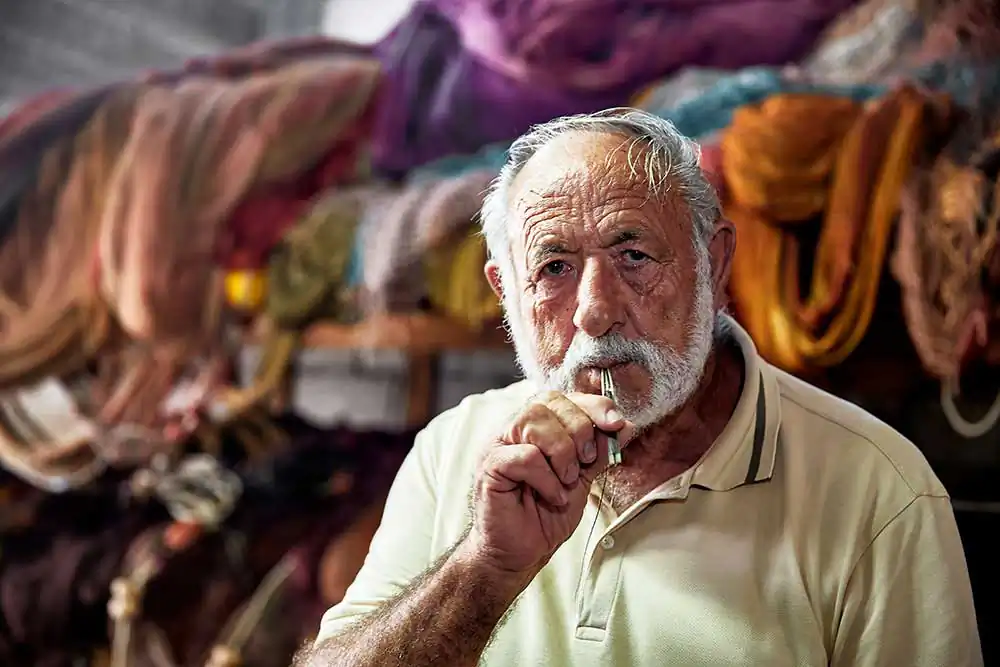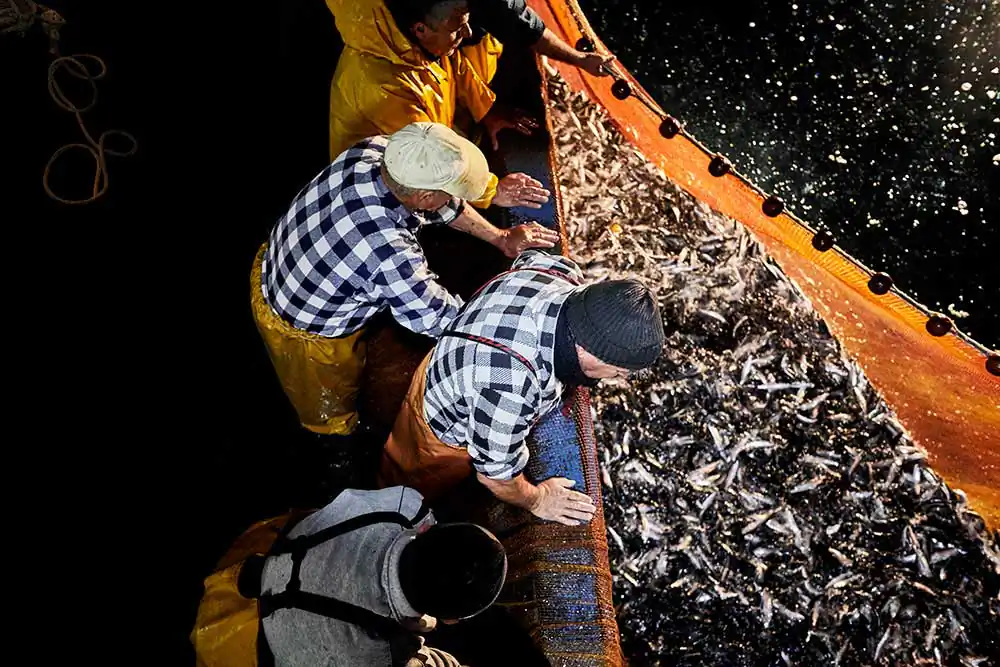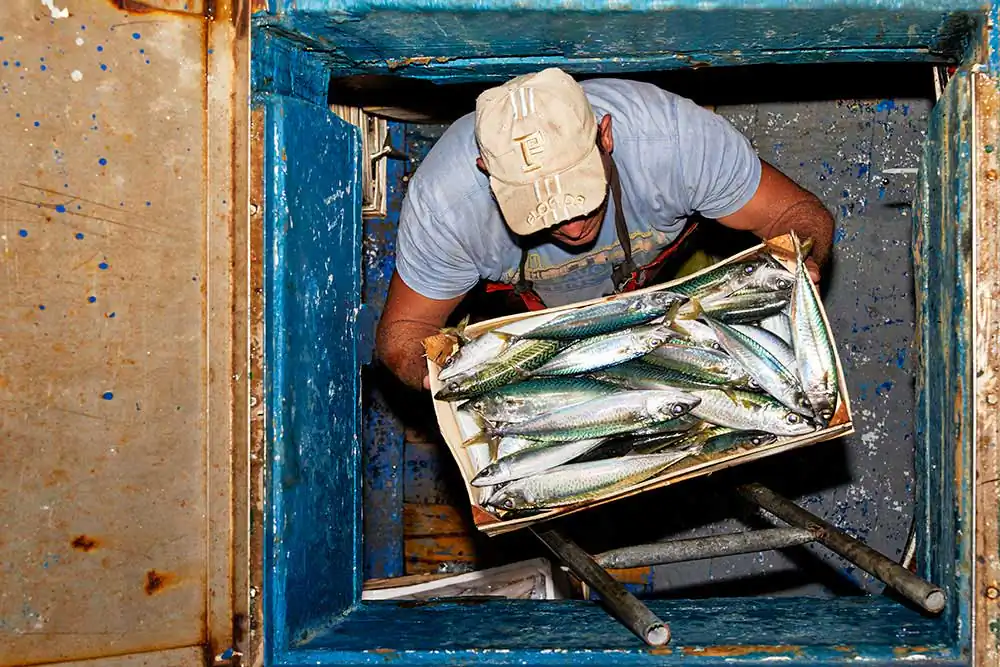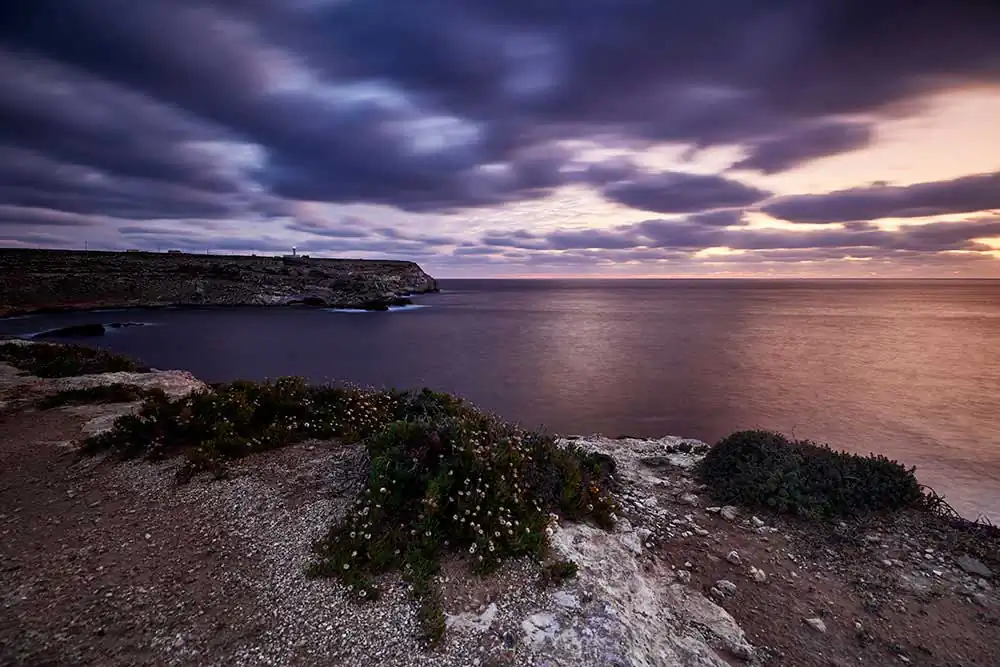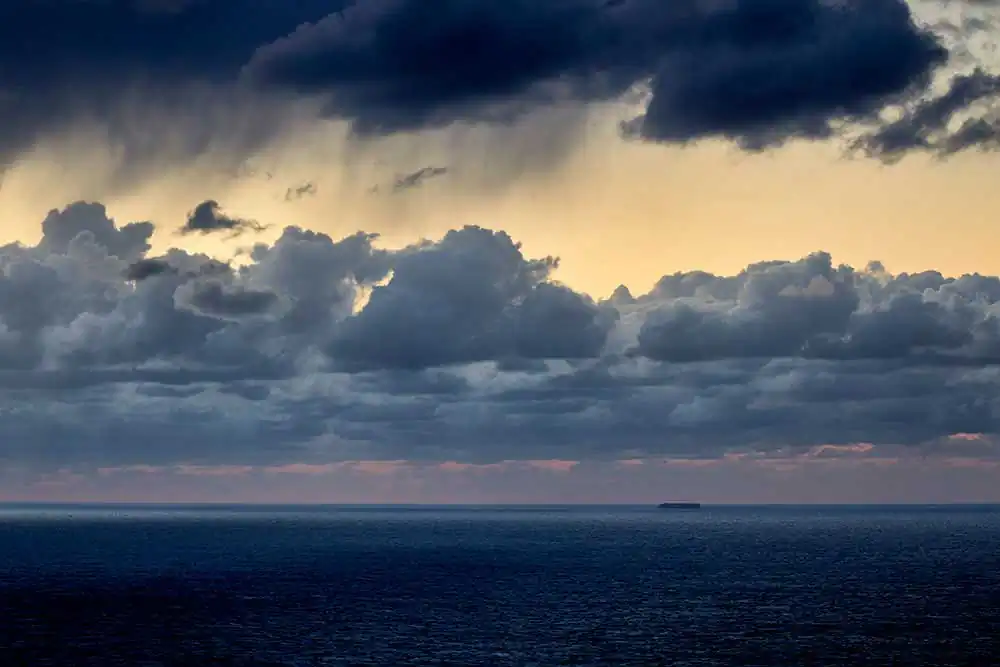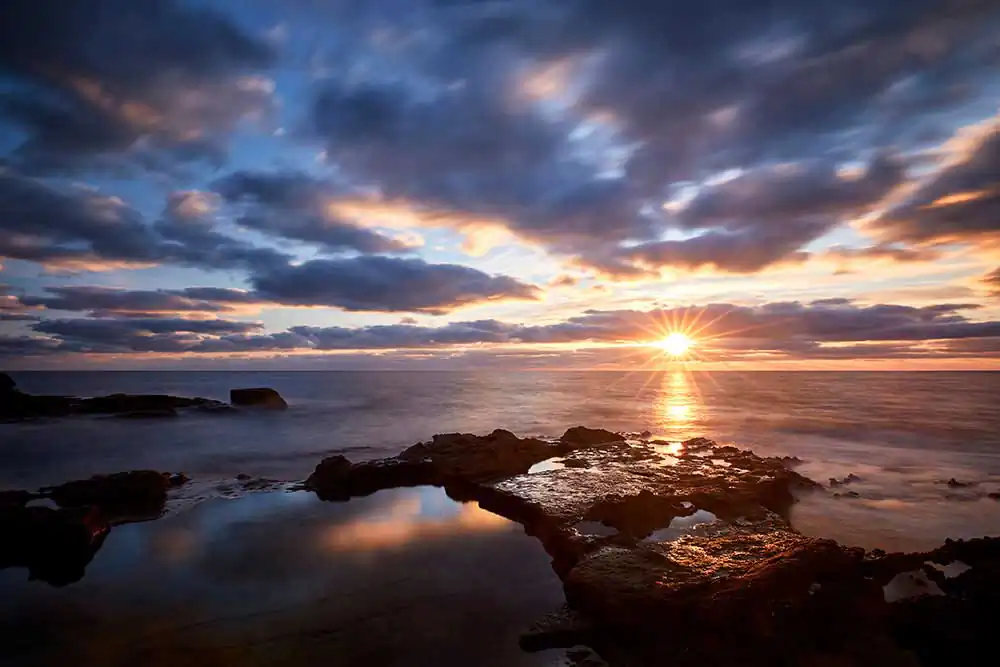The aim of the “Uno scoglio chiamato Lampedusa/A rock called Lampedusa” photographic book with text in both Italian and English, published in June 2022 by San Marco Edizioni (Italy), is a tribute to the beauty of Lampedusa, “o scogghiu”, the rock, as its inhabitants affectionately call it, and a thank you for the welcome the two authors, Sonia Fattori (photographs) and Marta Daneluzzi (texts) received.
Sonia Fattori first arrived on the island in February 2015 and, since then, there hasn’t been a year in which she hasn’t gone back. Photos taken during her first trips, always in collaboration with Marta Daneluzzi for the written part, have become a multivision “Dusa in the sea”.
Presented in various areas of Italy, it constantly meets the same amazement from spectators. Incredulous in the face of so much beauty and disoriented by not finding confirmation of their idea of a place “invaded by migrants”, they ask for information about the island in relation to the migrant landing issue.
Moreover, it is undeniable, that these are the reason and the motive for which Lampedusa makes its way, almost exclusively, to the headlines.
Only those who actually go there or are fond of reading and travel sites know that one of the most beautiful beaches in the world is here, the rabbit beach, and only those who have the opportunity to experience it, abandoning themselves to the rhythms of the island, can get to know and meet the true soul of Lampedusa.
With the idea of creating a book and photographic exhibition that would do justice to its essence, Sonia and Marta reached the island together in the spring of 2019. They travelled far and wide, walking, observing, meeting, making acquaintances with people and places, weaving relationships …
Maybe because geographically it actually belongs to Africa to such an extent that a little of that air, fragrance and colour so famous for the “mal d’Afrique” still linger here, Lampedusa is unable to leave anyone indifferent, it is unable to be a place that just emerges in a list of those you want to see: Lampedusa remains ingrained, you find it like the sand that suddenly comes out of a backpack or a perfume, a colour, an image that takes you back without warning, kidnapping you and leading you back, to the very place you experienced such emotions of wonder.
The photo archive created by Sonia Fattori over the years is vast and putting together a selection that could be transformed into a book and photographic exhibition, with a text which, when divided into five chapters, could summarise successive moments of exploration and discovery of the island, and be used as a guide.
The result is a book on the nature of the island, on its “symbolic” places, its inhabited centre, and the characteristic buildings of the dammusi and the dry-stone walls that square the hinterland, on the people who live by and with the sea: a sea that leaves you breathless. It is a book on ancient trades and also on the difficulties that living on an island so distant from the mainland country to which it belongs involve and which are unimaginable until you live them for yourself: it is a declaration of love.
Beyond the faces of some of the islanders, the photos represent the triumph of the beauty of nature, taken in every season of the year: the only human presence being that of a solitary observer, in a sort of intimate dialogue with the environment.
The authors have decided to donate the proceeds of the book to a local organisation as a sign of gratitude for what the rock has given them. They have chosen the Lipadusa Cultural Music Association, a group made up of excellent musicians, many of them non-professionals, who with great love for their land, and not a few difficulties, have marked a musical rebirth on the island with concerts, cultural events and music education projects for the younger generation. The choice is dictated not only by the difficult conditions in which the association operates, nor by the importance that the association has for the island and for the priceless mission of offering children the opportunity to discover and cultivate their talents, but it is also a fine representation of the Lampedusan soul: genuine, generous, passionate, humble and, when necessary, combative. [More info: [email protected]]


